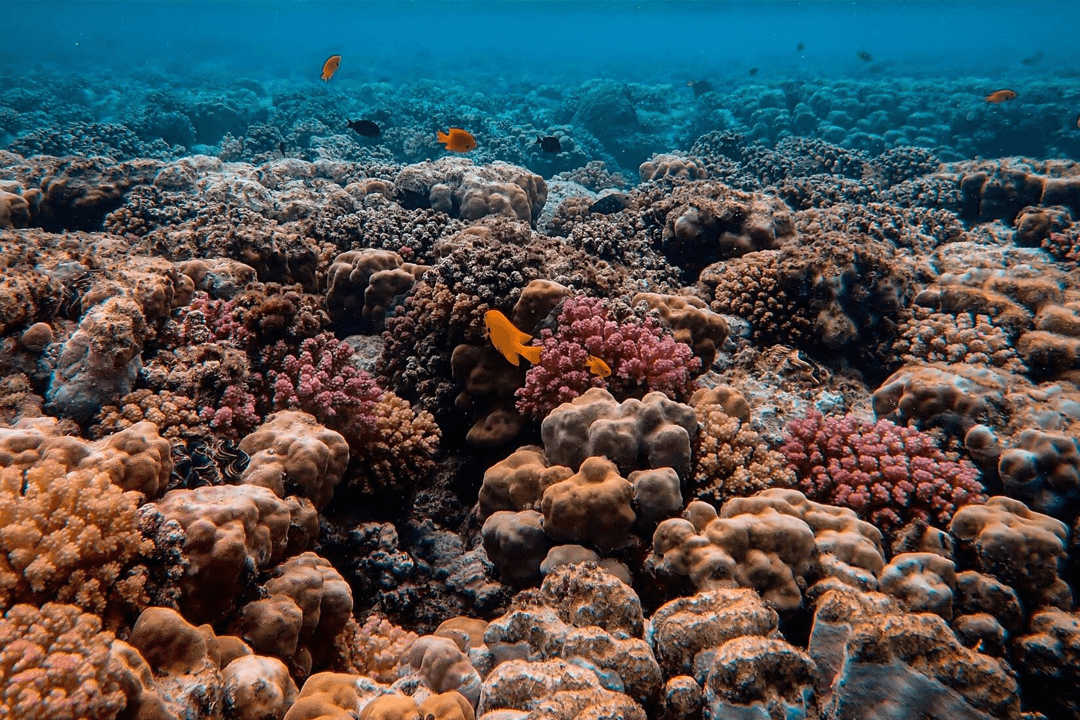Leading Saudi organizations celebrate launch of new foundation and join the fight to save coral

Dignitaries and leading Saudi entities come together to support Saudi Arabia’s leading role in the fight to save corals
28 August, Riyadh – Dignitaries and leading Saudi entities joined host Ministry of Environment, Water and Agriculture (MEWA) at Crowne Plaza Riyadh, Digital City to celebrate Saudi Arabia’s leading role in saving corals globally, with the official launch of the Coral Research & Development Accelerator Platform (CORDAP) Global Platform Foundation to Accelerate Research and Development of Coral Reefs (Global Platform Foundation).
In attendance at the event, on a panel titled The Rise of Saudi Leadership in the Environment: The Fight to Save Corals was H.R.H. Princess Reema bint Bandar Al Saud, Saudi Arabian Ambassador to the United States.
H.E. Dr. Fahad bin Abdullah Toonsi, Secretary-General of the Saudi Secretariat for the G20 and Advisor at the Royal Court, provided welcoming remarks. This was followed by welcome remarks from Dr. Osama Faqeeha, CORDAP IGC Chair, Global Coral R&D Accelerator Platform Foundation Chair, and Deputy Minister of Environment, Ministry of Environment, Water and Agriculture, Saudi Arabia.
Comments from Dr. Tony Chan, President of King Abdullah University of Science and Technology followed, emphasizing KAUST’s support for CORDAP and Saudi Arabia leadership for coral conservation and research.
Showing their support for Saudi Arabia’s leading role in the fight to save corals, these leading Saudi entities then signed letters of intent or memorandums of understanding (MOU) to support the Global Platform Foundation.
- Letter of Intent with Red Sea Authority represented by Eng. Mohammed Al Asiri, acting CEO. MOU with Environment Fund, represented by Mr. Muneer Fahad Al-Sahli, CEO
- MOU with National Center for Wildlife, represented by Dr. Mohammed Qurban, CEO
- MOU or LOI with NEOM represented by Dr. Richard Bush, Chief Environment Officer
- MOU with AEON Collective represented by H.R.H. Princess Noura bint Turki Al-Saud and H.H. Princess Mashael Saud Al Shalan, Founding Partners of AEON Collective
CORDAP was adopted by the leaders of the G20 states during the summit held under the Saudi Presidency of the G20 in Riyadh (November 2020) to fast-track research and development solutions to save the world’s corals. CORDAP headquarters is at King Abdullah University of Science and Technology (KAUST) in Thuwal, Saudi Arabia, but can operate internationally. The Chair of CORDAP and Deputy Minister of Environment is Dr. Osama Faqeeha.
In March 2023, a Royal order approved the creation of the Global Platform Foundation, a non-profit organization that will serve as the financial arm of CORDAP.
“The Royal Court’s approval of the Global Platform Foundation marks a major milestone toward implementing this distinguished global initiative,’” said Dr Osama Faqeeha. “The non-profit organization will facilitate the receipt of financial contributions to CORDAP from G20 and non-G20 countries, the private sector, and other contributors according to CORDAP’s charter endorsed by G20 environmental ministers.”
“The future of our oceans depends on us taking action now,” said Professor Carlos M. Duarte, Executive Director of CORDAP and Distinguished Professor at KAUST. “70-90% of the remaining coral reefs could disappear in the next 10-15 years. An ocean without healthy corals is unthinkable. Accelerating the next generation of science and technology to help conserve and restore corals, while no efforts are spared to mitigate the pressures on them, must be a priority.”
The Global Foundation Platform will enable CORDAP to significantly expand its global outreach to support research and development solutions for coral reefs worldwide.
In accordance with the guidelines and processes established by the Global Platform Foundation’s Governance Committee, the organization will provide financial resources to aid CORDAP’s restoration objectives.
Resources include facilitating the receipt of conferment, donations, subsidies, grants, bequests, endowments or any other contributions from inside and outside Saudi Arabia; providing financial support and disbursement of funds for research and projects announced by the Initiative’s Scientific and Advisory Committee; and establishing branches or offices inside or outside Saudi Arabia as deemed necessary, among other responsibilities.
About CORDAP
The successful G20 Presidency of the Kingdom of Saudi Arabia identified coral reefs as key components of the ocean ecosystem at risk, and launched a collaborative Global Coral R&D Accelerator Platform (CORDAP), established by G20 nations in 2021, to drive a global effort to deliver the science and technology required to save tropical and cold-water corals.
CORDAP is:
- Committed to scalability. CORDAP-funded projects will deliver efficient coral restoration solutions suitable for large-scale intervention.
- Focused on R&D only. CORDAP is the only international organization fully dedicated to funding coral conservation and restoration R&D.
- Transdisciplinary. CORDAP integrates the abilities of the world’s best scientific minds in collaborative projects to develop effective and scalable solutions for coral conservation practitioners.
· Accessible to everyone. Our open-source platform will allow any organization to advance and use its freely-available technologies. CORDAP is also open to the participation of non-G20 nations and organizations committed to coral conservation and restoration.
Promotes participation of middle and low-income countries. We invest in capacity building and develop inclusive programs that involve scientists from middle and low-income countries, those most impacted by coral loss, across all of our programs.

